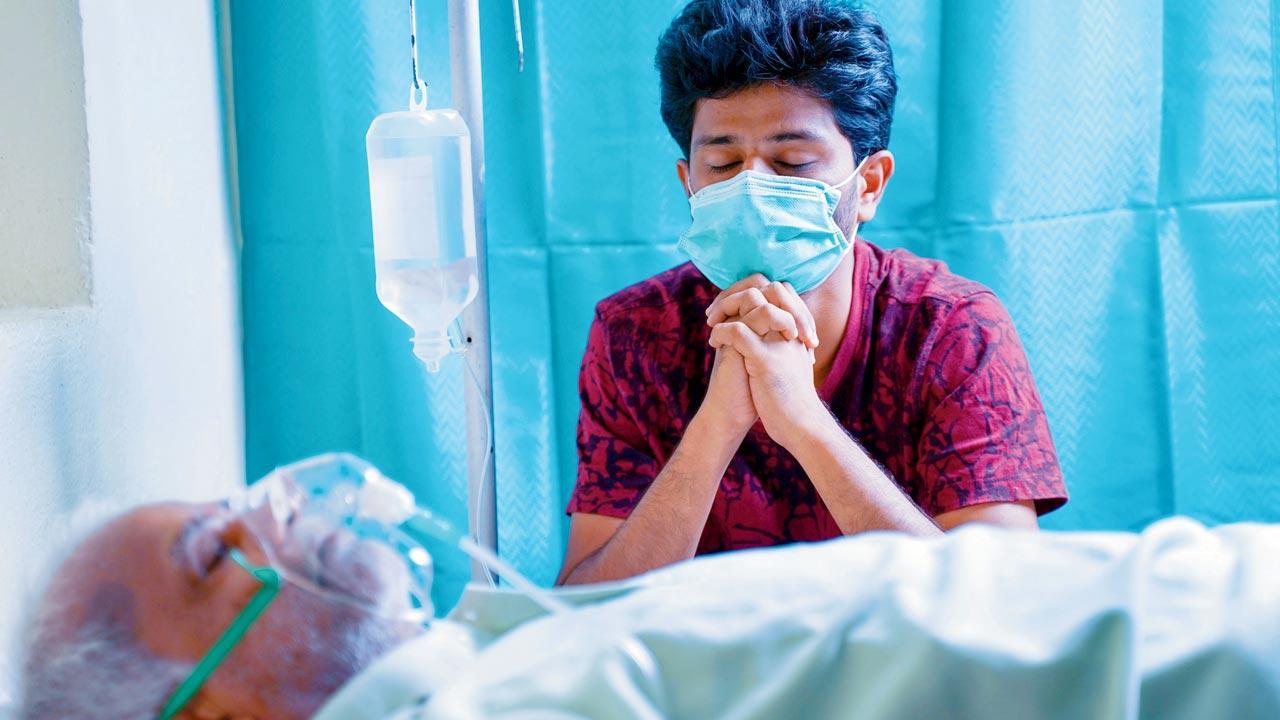Doctors link rise directly to lethality of second wave, when more people lost loved ones and fear of catching virus was high

With no chance for people to say goodbye to their loved ones, there have been numerous cases of grief-related depression. Representation pic
Are we sitting on a ticking bomb of a mental health crisis amidst the pandemic? City psychiatrists say the second wave has seen increased cases of mental health problems, especially anxiety and depression, among survivors and their kin. They say the issue needs government intervention and have demanded that the state set up a ‘mental health task force’ to facilitate screening of people for emotional well-being.
ADVERTISEMENT
Anxiety and depression are linked to viral diseases but in Covid-19, we see a slight difference. It is affecting the thinking process. There is reduced cognitive efficacy. Among common complaints are the fear of not being able to work well, being left out and decreased energy levels,” said Dr Sagar Karia, assistant professor, psychiatry department, LTMG Sion Hospital.
Sharing a typical post-Covid depression case, Dr Karia said, “I am treating a 42-year-old doctor who recovered from Covid. He seems to have lost confidence in returning to work. He doesn’t know if he can treat people now. He is suffering from anxiety.”
Change in brain structure
Dr Kersi Chavda, PD Hinduja Hospital said depression and anxiety have been common amid the pandemic. “The Covid-19 virus itself is known to change the brain structure. But normally, there would be a susceptibility or genetic tendency in a person that will increase the chances of getting it. We are seeing a huge number of people, who were earlier well maintained, landing up with more symptoms. Or those who were managing to control their anxiety or depression now seeking medical help for the first time,” said Dr Chavda.
Also Read: Fast vaccination is key: Time for Mumbai to turn into Singapore?
Agreeing with Dr Chavda, Dr Avinash Desousa, president of Bombay Psychiatry Society said the second wave being more lethal has caused more mental illnesses as compared to the first one. “The fear factor has been higher. We are seeing cases of grief-related depression as many were not able to say goodbye or cremate their loved ones,” he said.
Dr Desousa also said that post-recovery, if a Covid-19 patient finds himself low, feeling sad, has attention and focus issues, has crying spells, then he must get evaluated psychologically. “We generally put such patients on month-long anti-depressants and they are doing good. One should not overlook these symptoms,” he said.
Psychiatrists have urged to include these symptoms in Covid-19 management. “It is advised to have either a counsellor or a psychiatrist on board while treating a Covid-19 patient,” said Dr Desousa.
Far-reaching effects
Psychiatrists also feel that every state must have a mental health intervention module. “Surveys and studies across the world reveal increased emotional disturbances and mental disorders. The mental health tsunami will lead to disturbed family relationships, a rise in mental illnesses, economic distress, loss of man-days at work, violence, and suicide,” said Dr Harish Shetty.
Dr Shetty, who has also written to the state Covid task force to have a mental health task force, said, “The impact phase of this disaster has been more than 15 months. The mental health consequences will be 100 times more than any other disasters. Just like the sero-survey, we also need to have a mental health survey at the earliest.” He added that poor awareness, lack of facilities, and stigma have been the most important obstacles in tackling mental health consequences following a disaster.
5 vulnerable groups
Vulnerable groups needing immediate mental health help according to Dr Harish Shetty:
>> Families who have lost their near and dear ones
>> Covid survivors and their kin
>> Healthcare workers and those involved in emergency services
>> Those who have lost jobs, incurred financial losses, etc
>> Those with pre-existing mental or physical illnesses
 Subscribe today by clicking the link and stay updated with the latest news!" Click here!
Subscribe today by clicking the link and stay updated with the latest news!" Click here!






